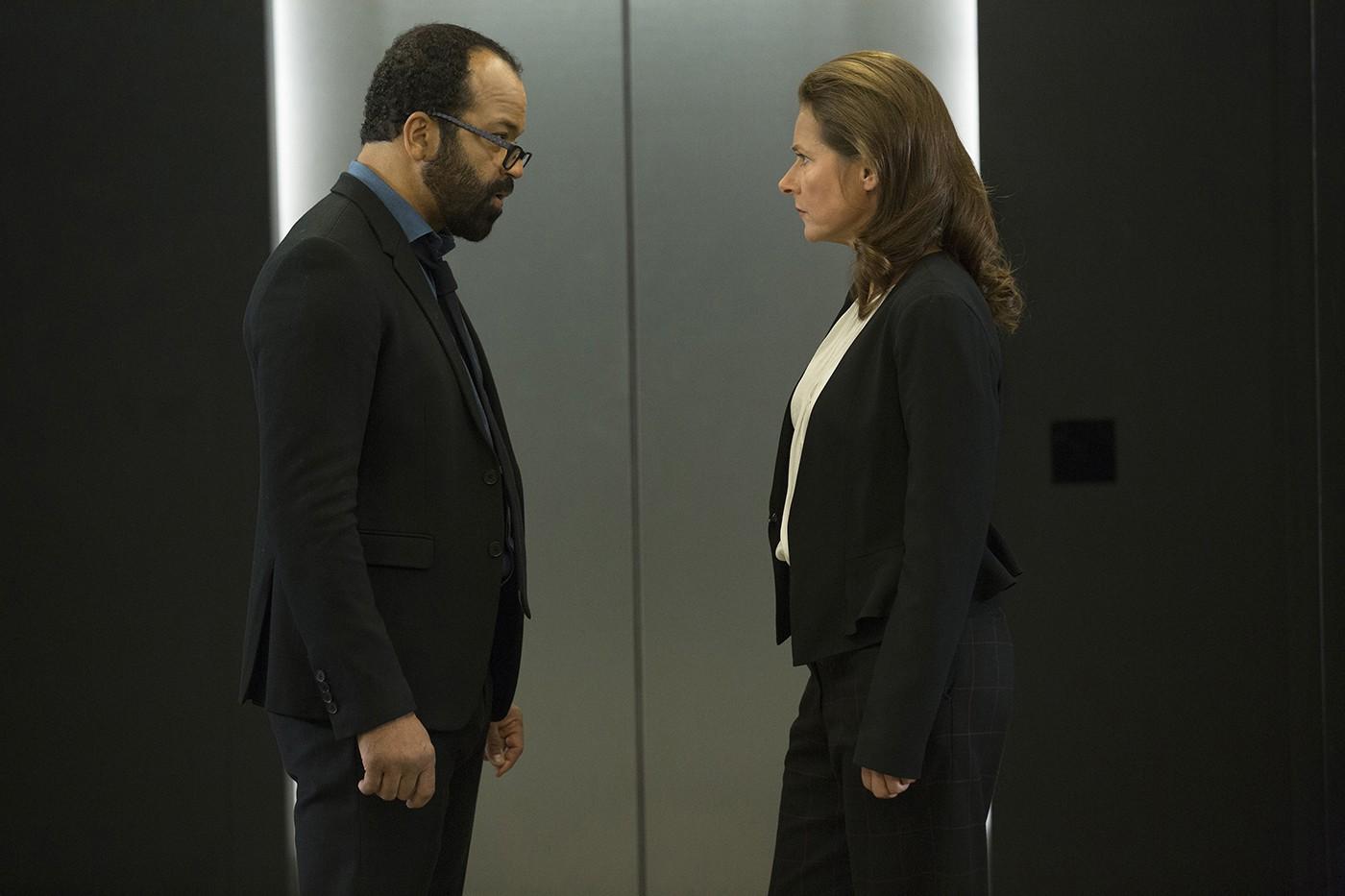
This post contains one rather large Westworld spoiler. Proceed with caution.
OK, people! One fan theory down, one fan theory inconsequential — space: the final frontier and the least interesting reveal Westworld could spring on us this late in its first season — and one seriously compromised, but still to go. So: Bernard’s a robot! Sorry, a host. Sometimes, the internet really does know what it’s talking about.
Thanks to, among other things, a too-neat “backstory” about a dead son, the suspicious longevity of his career, and some extremely on-the-nose Anthony Hopkins dialogue, viewers have more or less known Bernard’s not a human for a while. (A side effect of this reveal is the confirmation that Westworld’s writing, while still not spectacular, is sometimes deliberately clumsy. “I know the death of your son Charlie weighs heavily on you” was a command, not an exposition dump!) Now that the false suspense surrounding the true nature of Westworld’s head programmer is dispelled, we can finally aim our speculation a few steps further ahead.
The actual twist was pretty fantastically executed, injecting some major if last-minute pathos into the character of Theresa (Sidse Babett Knudsen) and imparting the image of the “Bernard” blueprint with as much shock as it could, given the anticipation. A robot realizing it’s not human is the principal horror of the series, but a human realizing a person he or she has been intimate with isn’t human is its own kind of fear (to say nothing of then dying at that person’s hands). Westworld is at its best when it forces us to feel that kind of visceral dread, which means that its climaxes play better than its endless buildup — see the success of Maeve’s arc, which proceeded with minimal bush-beating, versus the Man in Black’s. Goodbye, Theresa. We’ll miss your no-bullshit attitude and mysteriously unmodulated Danish accent.
What happened in the basement of that creepy cottage replica, however, does start to weave together strands of Westworld’s rapidly unspooling story. For starters: Yes, Bernard is a host, but he’s not in the same class as Dolores and Maeve. He lacks their burgeoning self-awareness, and therefore the spark that gives them the unpredictability, passion, and sympathetic quality of a natural-born human. (It’s also what gives viewers reason to invest in them, something Bernard as we now understand him noticeably lacks.) Instead, he’s a dutiful servant to Ford, who appears to be completely in control of the widespread malfunctions in the park — in fact, he’s the primary suspect for who’s been causing them, by way of that command center Elsie (unfortunately for her) stumbled on a couple of weeks ago and realized had been used to tamper with hosts’ primary directives.
This at least explains why an un-woke host would be allowed near — made responsible for, even — so many increasingly conscious hosts, given that said consciousness is contagious. Bernard isn’t letting Dolores wake up in spite of his responsibilities; he’s doing so as a part of them, suggesting, once again, that Ford’s control of Westworld’s “problems” is near-absolute. Bernard is Ford’s lieutenant, more so than he even knows. And unlike Maeve, when he’s ordered to go unconscious, he stays there.
So, to ask the obvious: What now? Presumably, the death of a major Delos executive will go neither unnoticed nor unpunished. Does Ford plan to place the blame on Bernard? What’s his endgame here? He clearly doesn’t approve of whatever the corporation’s endgame is (itself a pressing question), hence his decision to stanch the flow of proprietary information out of the park by killing Theresa. What’s the reason for Ford’s late-in-life change of heart regarding the hosts’ autonomy, now all but confirmed, and how does it connect to the Man in Black? Or to Arnold? As far as I can tell, this doesn’t have any bearing on the two-timelines theory, but while we’re at it, what does this mean for that, too?
The Bernard reveal feels like a tentative step toward having a real conversation about these questions, which would allow Westworld to move its themes forward rather than keeping them an ambiguous soup of hypotheticals. Dropping a major-ish event like this with three hours of the season to go is even encouraging, suggesting that, however disappointingly plot-centric Westworld has been in recent weeks, the show doesn’t plan on skating by on pseudo-suspense alone. It’s the ideas that continue to be Westworld’s strength. Bernard’s true nature is interesting as a twist, but even more so as a hint toward what those ideas might be.
Disclosure: HBO is an initial investor in The Ringer.